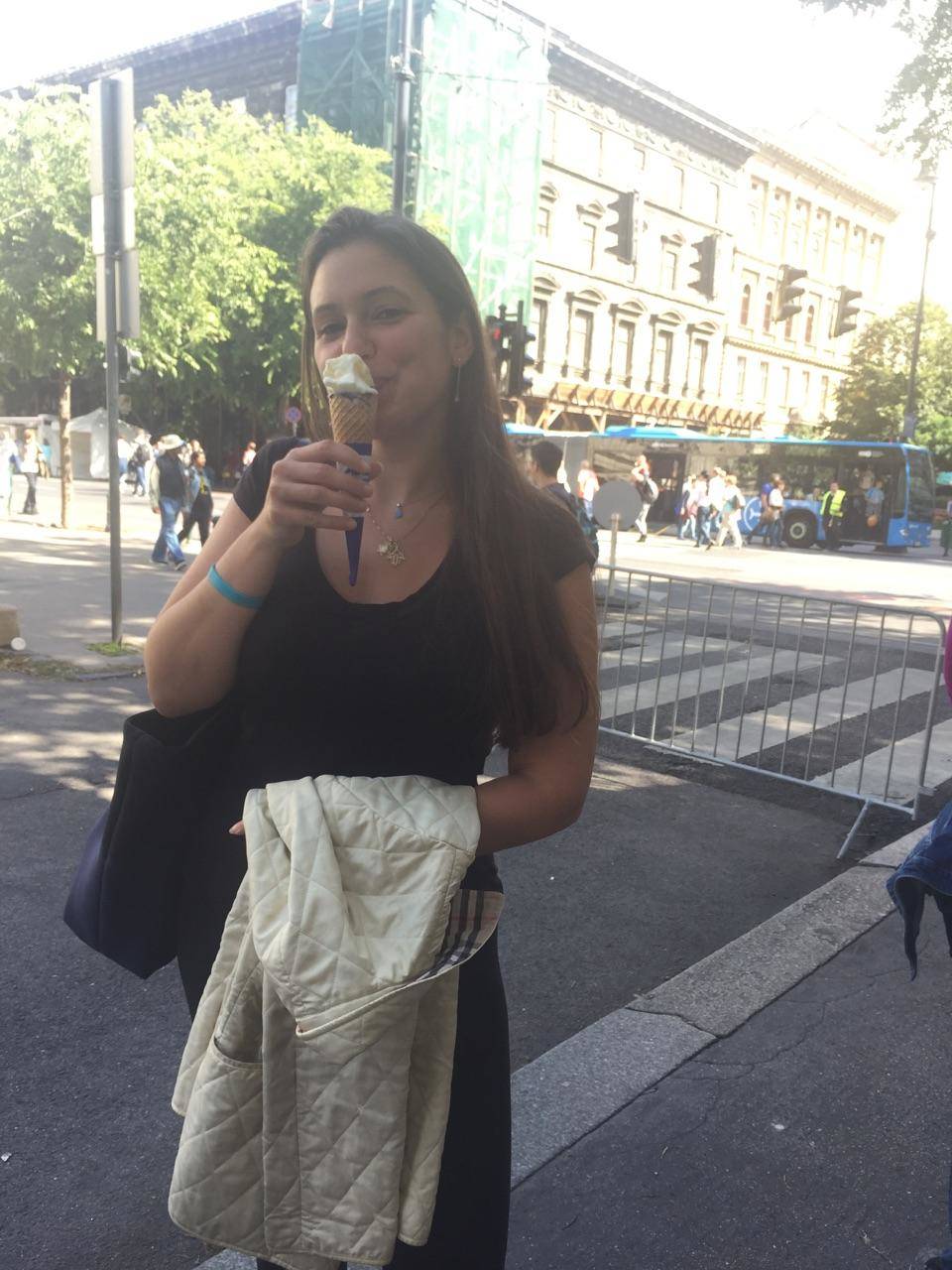
Breastfeeding and caffeine consumption are topics of interest for many nursing mothers. While moderate caffeine consumption is generally considered safe during breastfeeding, there are some important considerations to keep in mind:
1. Transfer of Caffeine to Breast Milk: Caffeine is a stimulant that can pass from a mother's bloodstream into her breast milk, although the amount that reaches the milk is usually relatively low. The concentration of caffeine in breast milk is typically about 1% of the mother's caffeine intake.
2. Timing Matters: The timing of caffeine consumption can affect the levels of caffeine in breast milk. Caffeine levels in breast milk are highest about 1-2 hours after consumption. To minimize the amount of caffeine in breast milk, it's advisable to wait at least 2-3 hours after having a standard-sized cup of coffee (containing about 100-200 mg of caffeine) before breastfeeding.
3. Infant Sensitivity: Some infants may be more sensitive to caffeine than others. Premature infants and newborns may have a harder time metabolizing caffeine, potentially leading to irritability, restlessness, and sleep disturbances. Older infants may be less sensitive.
4. Monitor Your Baby: Pay attention to your baby's behavior and sleep patterns if you consume caffeine. If you notice that caffeine seems to affect your baby, consider adjusting your caffeine intake or timing.
5. Moderate Consumption: Most experts agree that moderate caffeine consumption by a breastfeeding mother is generally safe. This typically means consuming no more than 200-300 milligrams (about one 12-ounce cup of coffee) per day. Keep in mind that caffeine is found not only in coffee but also in tea, soft drinks, energy drinks, and some medications.
6. Stay Hydrated: If you consume caffeinated beverages, remember that caffeine can have a mild diuretic effect, potentially leading to increased urination. Make sure to stay well-hydrated to compensate for any fluid loss.
7. Individual Variability: Each breastfeeding mother and baby is unique. Some babies may be more sensitive to caffeine than others, and some mothers may metabolize caffeine more slowly or quickly. It's important to be attentive to your specific situation and adjust your caffeine consumption accordingly.
8. Caffeine Alternatives: If you're concerned about caffeine's effects on your baby, you can explore caffeine-free alternatives such as herbal teas or decaffeinated coffee.
In summary, moderate caffeine consumption by a breastfeeding mother is generally considered safe for most infants. However, the timing of caffeine consumption and individual variations can influence how it affects the baby. If you have concerns or notice any adverse effects on your baby, consult with a healthcare provider or a lactation consultant for personalized guidance on managing caffeine intake while breastfeeding.

Dairy products, such as milk, cheese, and yogurt, can impact breastfeeding in various ways, both positively and negatively. Here are some considerations regarding the impact of dairy on breastfeeding:
- Some infants may be sensitive or allergic to proteins found in cow's milk that can lead to digestive issues, skin rashes, colic or other symptoms
- For mother, dairy products can sometimes cause GI issues such as gas, bloating or diarrhea
- Colic or fussiness may occur after dairy is consumed due to the high levels in the mother's diet that baby is then consuming
The most important thing is to monitor baby and yourself after dairy is consumed. Pay attention to your baby's behavior, feeding patterns, and any unusual symptoms (like spitting up more than usual or excessively). If you suspect an issue related to dairy, consult with a healthcare provider or a lactation consultant for guidance.
There are plenty of dairy free alternatives on the market, but be mindful of some of the additives present in certain brands. Options like almond milk, coconut milk and other plant choices can be great options. I actually make my own coconut milk using shredded coconut (this helps keep the additives out and only takes about 15 minutes). Here's the link if you'd like to check it out!

Cluster feeding is when your baby has a lot of feeds in a short amount of time. It can definitely feel taxing on your body and can cause you to feel a little overwhelmed.
I remember when my little guy had moments of eating non-stop for what felt like forever, of course it is not forever, but in the moment that’s how it felt. It’s normal to forget that cluster feeding is a thing (I know I did) and that in fact there isn’t anything wrong with him or me, it's just how babies do life!
So how can you make cluster feeding a little more manageable?
✨ keep water and snacks nearby
✨ have a station set up with things to entertain you (in reality this is multiple stations for me😜)
✨ change positions when you can (I like to alternate boobs, helps regulate flow plus keeps the boobs a bit more even 😆)
✨ plan ahead (go to the bathroom, make sure your water is filled)
✨ ASK FOR HELP
It’s so important to ask for help when your baby is cluster feeding because your focus is solely on feeding baby during this time. If you need someone to hold baby for a moment or two in-between feeds or someone to get you a snack or fill your water; that’s okay! You’re going to be so glad you asked for help.
I think of the most important things I've learned/been reminded of when it comes to caring for a baby is to just pay attention and think about what could be going on. This sweet little baby is so new and just getting used to life outside the womb! As new parents, we have a tendency to jump to the worst case scenario, when that isn't always the case. Definitely learning as we go!
Breastfeeding can be a little stressful at first, which is why I created a resource just for breastfeeding moms packed with tips and resources to support you along your journey! Grab it here!

Nursing in public can sometimes feel a little overwhelming and stressful, but is a a natural and important part of caring for infants. Unfortunately, there are a lot of different thoughts and feelings around breastfeeding in public. I've always been the, 'every woman should do what she wants and feels good doing' type of person with this, as it truly is the mother's decision.
The goal is for you to feel comfortable and empowered to breastfeed your baby whenever and wherever you need to. If you feel comfortable doing so in public, great! But if you are someone who doesn’t feel comfortable nursing in public, that’s okay too! My stance is that baby’s got to eat regardless of where we are.
If you're not exactly one of those types or aren't sure yet what type of nursing mom you might be, here are some tips that can be helpful!
✨ My first tip is to dress comfortably and in a way that allows you to easily nurse. There are great clothing options you can grab to dress for success!
Nursing tops or tops that make it easy to nurse are helpful.
✨ If you prefer to use a cover, make sure to use one that is loose and well ventilated. It can quickly become a hot and sweaty situation for mom and
baby!
✨ Wearing baby in a sling or wrap to nurse is a great option too and is comfortable for both of you.
✨ Depending where you are, you can ask for special accommodations; many places have nursing stations!
In summary, it's important to do what is most comfortable for YOU. Breastfeeding is a beautiful, natural part of caring for your child.
Currently a breastfeeding mom and looking for a little support?
Grab my breastfeeding freebie here packed with tips and resources for breastfeeding moms!

Did you know that certain foods can support your body during your postpartum and breastfeeding journey? It’s truly amazing what food can do for your body when you nourish it properly!
There are so many different thoughts around breastfeeding and your postpartum recovery, but it’s important to find what works best for you. This is what helped me in my experience and I think there’s so much value in hearing about other mother’s experiences, but it’s even more important to lean into your own body and listen to your instincts!
Many women focus on warming foods, described in the most simplistic way, you had a baby furnace in your body and now you don't! (spoiler there is a lot more to it but we're keeping it simple!). The warmth allows your energy to flow freely through your body providing wellbeing and a sense of comfort; like being swaddled in a blanket!
👉When I was still in the recovery depths, right after birth I made sure we had soups on hand in order to warm my body as it got used to not having a little one in there. One of my favorites was a take on a potato leek soup! These are great to prep ahead of time too and be able to warm up as needed.
👉Another one was energy balls, I actually loooooved these during labor, well as much as I was eating over those hours anyway! They're not the MOST nutritious but they taste delicious and bring me joy. It’s nice to have things on hand that you can quickly grab and eat because this can be a stage where you might not be able to cook much!
I share these recipes and so much more in my breastfeeding guide for new moms that you can grab here!




